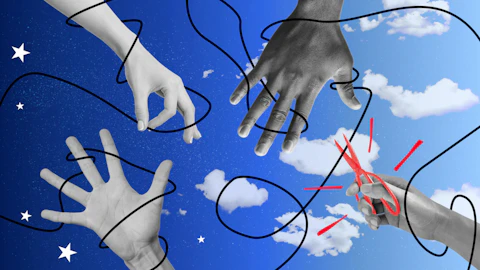Back then, freedom meant understanding our history, our contributions, and our legacy. Freedom meant knowing where we came from and believing there were no barriers to how far we could go.
Read the rest of COURIER’s What Is Freedom series here.
My mother was a Civil Rights freedom fighter at her alma mater, Morgan State College (now University) in 1963, and my father served in the U.S. Army after he graduated from South Carolina State in 1962. I was raised to expect the best from the United States because the founders demanded it, but I also learned that America can enslave, rape, exploit, and disappoint.
Reconciling these two Americas—thanks to my parents and growing up as a Black girl in the South—was a profound part of my upbringing.
As did most, I learned about Martin Luther King Jr. But my parents also made sure my sister and I knew about Malcolm X and read Alex Haley’s book Roots.
Back then, freedom meant understanding our history, our contributions, and our legacy. Freedom meant knowing where we came from and believing there were no barriers to how far we could go.
Having spent more time in the South than any of the places my father’s military service took us, I claim my Southern heritage as a point of pain and pride.
As a young patriot in the South Carolina school system, I eagerly learned about white contributions to American society—and embraced them as if they were my own. I sang “God Bless America” in music class. I screamed the chorus of “Deep in the Heart of Texas” with the rest of my classmates. When we celebrated the bicentennial in 1976, I wrote a poem that garnered recognition in the school poetry contest.
The message was the same for each school I attended. Americans were rebellious explorers who left England to create a new country designed for the free and the brave. Over time, I began to notice a trend. There was never enough room in the textbooks for the contributions of those with black, brown, red, or yellow skin tones. Those stories were relegated to small sections in the margins. I can hear Mrs. Sparrow, my seventh grade Social Studies teacher, tell us that the Civil War was about “state’s rights,” not slavery. That was a white-washed telling of history, not the truth.
Freedom now is understanding that in 2020, the freedom my parents had hoped would be as easy as reciting the Pledge of Allegiance is now complicated and uncertain. My parents, divorced after 12 years of marriage, each reach out to me in different ways to share their shock and dismay about where the country seems to be heading.
They thought their struggles would have offered insurance that things would change. Instead, they tell me the headlines are like what they heard as young people. They are frustrated because the freedoms they had hoped to pass down to my sister and I appear in need of being won again.
We are fighting in ways they say are eerily reminiscent of the events from their day: Black men and women being terrorized by police, and racists hurling insults. Only now, the recordings are on cellphone videos.
Our freedom was supposed to be effortless. Otherwise, what did my parents spend years fighting for?





